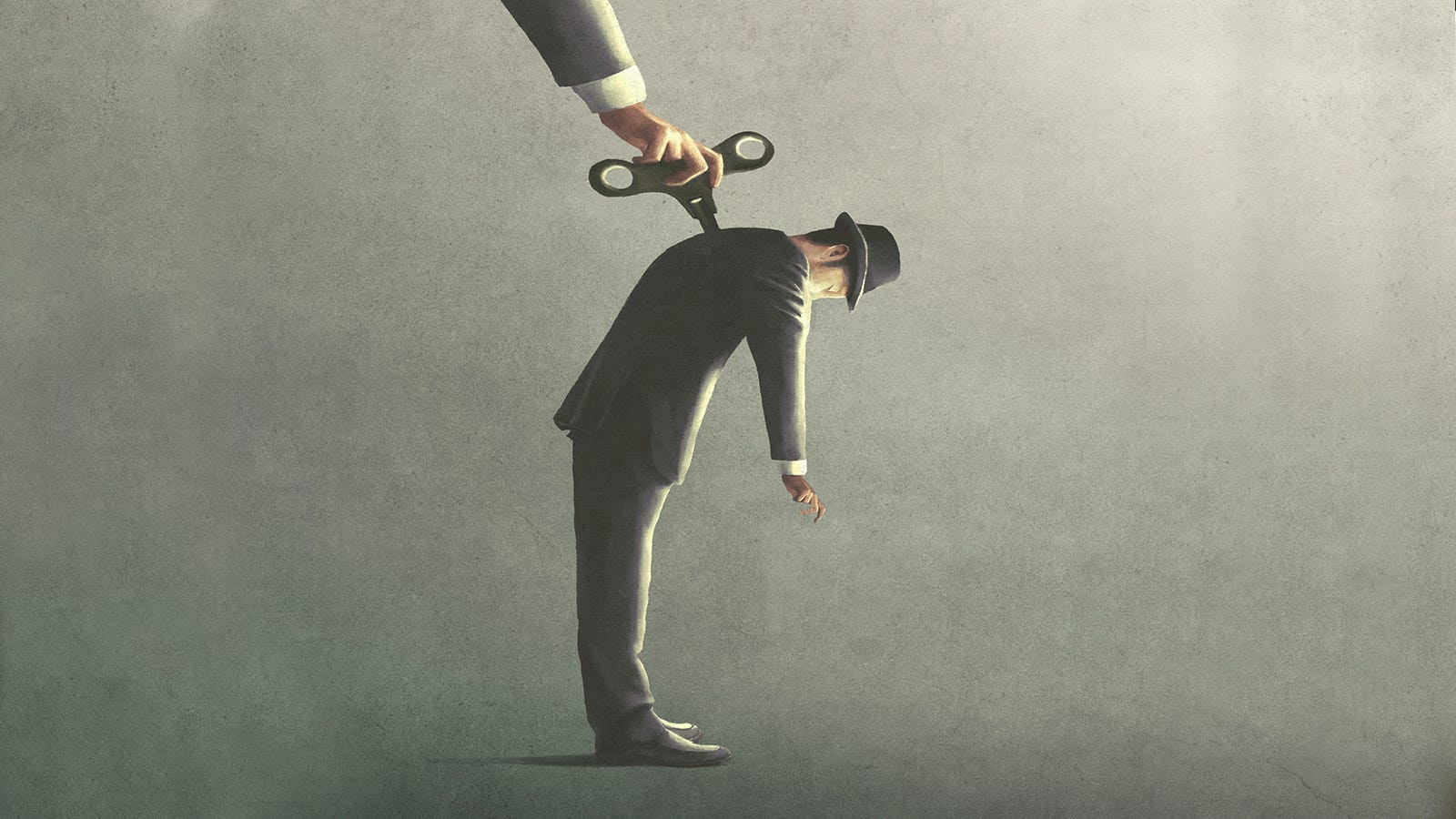The conscious and intelligent manipulation of the organized habits and opinions of the masses is an important element in a democratic society. Those who manipulate this unseen mechanism of society constitute an invisible government which is the true ruling power of our country. We are governed, our minds are molded, our tastes formed, and our ideas suggested, largely by men we have never heard of.
— Edward Bernays

The Edward Bernays quote up top comes from his 1928 book, Propaganda. Bernays was the nephew of Sigmund Freud. He was also a public relations pioneer, and one of America’s most innovative social engineers.
In the early 20th century, he was called upon to, um, persuade a wary U.S. populace into pulling a complete 180 to support their nation’s entry into World War I.
Bernays teamed with veteran newspaperman George Creel to form the Committee on Public Information. Founded in 1917, the Creel Committee (as it came to be known) was the first government agency for outright propaganda in U.S. history.
It published 75 million books and pamphlets, had 250 paid employees, and mobilized 75,000 volunteer speakers known as “Four-Minute Men,” who delivered their pro-war messages in churches, theaters, and other places of civic gatherings.
The idea, of course, was to give the war effort a positive spin. “It is not merely an army that we must train and shape for war,” President Woodrow Wilson declared at the time, “it is an entire nation.”
The age of manipulated public opinion had begun in earnest.
Although Wilson won reelection in 1916 on a promise of peace, it wasn’t long before he severed diplomatic relations with Germany and proposed arming U.S. merchant ships — even without congressional authority.
Upon declaring war on Germany in December 1917, the president proclaimed, “conformity will be the only virtue and any man who refuses to conform will have to pay the penalty.” (Sound familiar?)
In time, the masses got the message — as demonstrated by these (and other) results:
- 14 states passed laws forbidding the teaching of the German language.
- Iowa and South Dakota outlawed the use of German in public or on the telephone.
- From coast to coast, German-language books were ceremonially burned.
- The Philadelphia Symphony and the New York Metropolitan Opera Company excluded Beethoven, Wagner, and other German composers from their programs.
- German shepherds were renamed Alsatians; dachshunds became Liberty Pups.
- Hamburgers were transformed into “Salisbury steaks.”
- Sauerkraut became known as “liberty cabbage.”

Buoyed by the indisputable success of the Creel Committee and armed with the powerful psychoanalytical techniques of his Uncle Sigmund, Bernays set about to continue shaping American consciousness in a major way.
A fine illustration of Bernays’ “smoothly functioning society” involves his efforts — for the American Tobacco Company — to persuade women to take up cigarette smoking. His slogan, “Reach for a Lucky Instead of a Sweet,” exploited women’s fear of gaining weight (a concern purposefully manufactured through previous advertising and/or public relations work).
While Lucky Strike sales increased by 300 percent in the first year of Bernays’ campaign, there was still one more barrier he needed to break down: smoking remained mostly taboo for “respectable” women.
This is where some watered-down Freud came in handy. As Bernays biographer Larry Tye said, he basically wanted to take his uncle’s works and “popularize them into little ditties that housewives and others could relate to.” With input from psychoanalyst A.A. Brill, Bernays conjured up the now legendary scheme to re-frame cigarettes as a symbol of freedom.
“During the 1929 Easter Parade,” explains New York Times reporter Ron Chernow, “he had a troupe of fashionable ladies flounce down Fifth Avenue, conspicuously puffing their ‘Torches of Freedom,’ as he had called cigarettes.”
As Chernow reports, Bernays augmented this successful stunt by lining up “neutral experts” to “applaud the benefits of smoking, all the while concealing the tobacco company’s sponsorship of his activity.”
Bernays was also concealing his knowledge of tobacco’s deleterious effects. “As he hypocritically seduced American women into smoking, he was trying to wean his own wife from the nasty habit,” Chernow continues. “His daughter Anne Bernays, the novelist, recalls that whenever he discovered a pack of his wife’s Parliaments, ‘he’d pull them all out and just snap them like bones, just snap them in half and throw them in the toilet. He hated her smoking.'”
It’s no wonder so many of today’s Americans — all across the ideological spectrum — are so easily and willingly duped by fake news, deep fakes, and clickbait. The system has been in place for more than a century.
In the era of social media and a 24-hour news cycle, we are now exposed to more propaganda than ever before as Bernays’ PR progeny continue refining and honing their skills. They keep us passive, distracted, and very divided. Most Americans are thusly trapped inside news feed algorithms that serve as echo chambers to create and reinforce opinions.
We, all of us, are the end result of an ongoing social experiment. We’ve gone from “liberty cabbage” to “flatten the curve.” We’ve surrendered the ability to discern fact from fiction. Even worse, so many of us have surrendered the desire to discern fact from fiction.
A good place to start when challenging these realities is to accept that the past was just as corrupt as the present. There were no “good old days.” It’s not about “taking back” anything but, rather, creating something new to leave behind for future generations.












